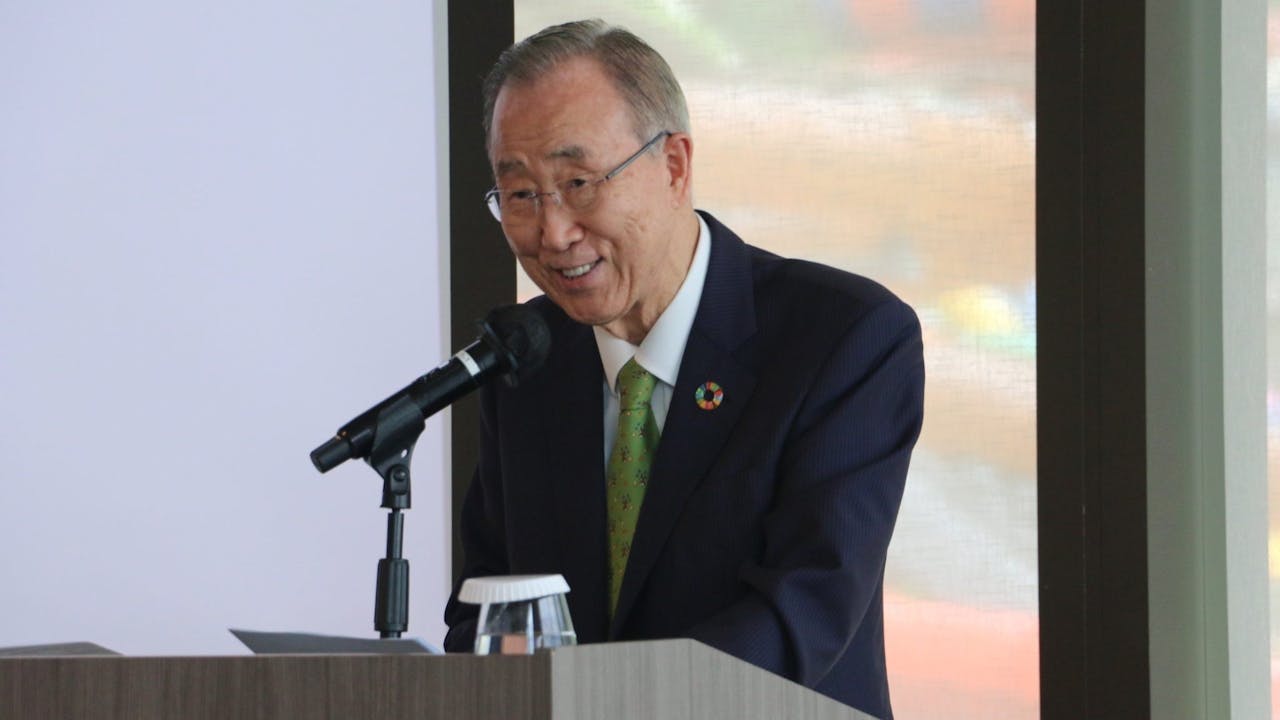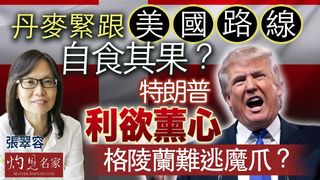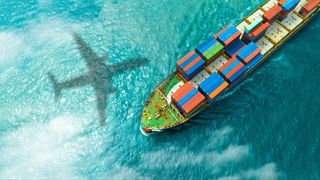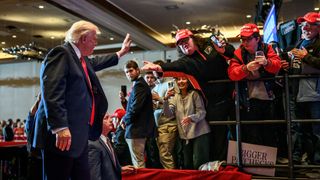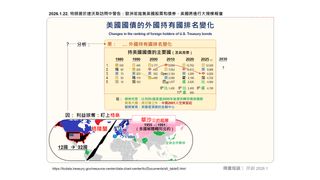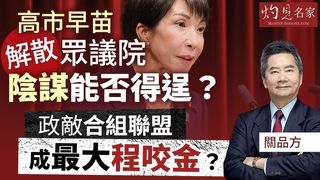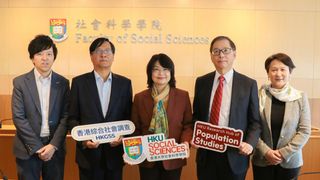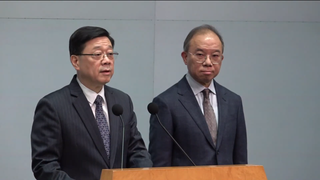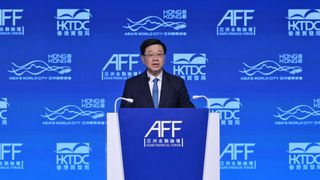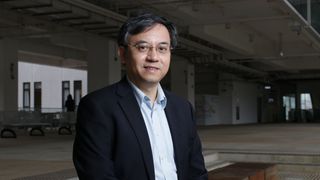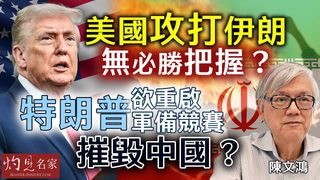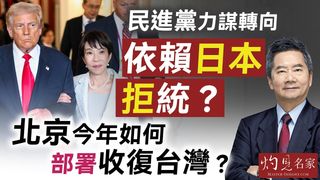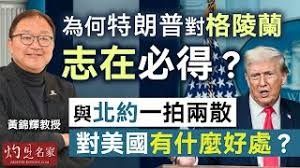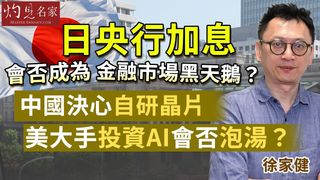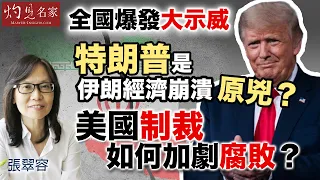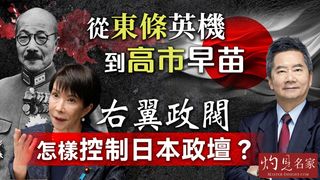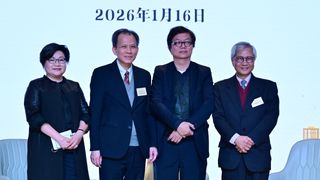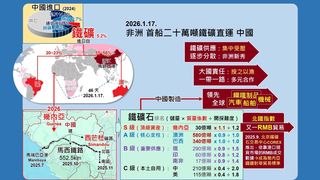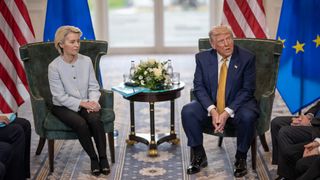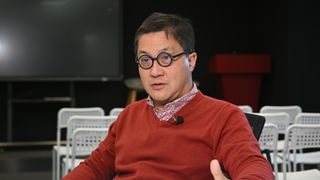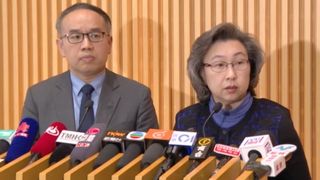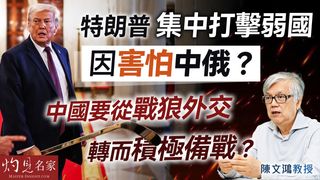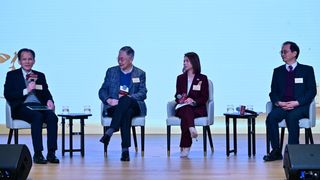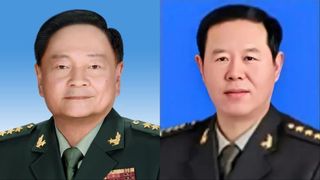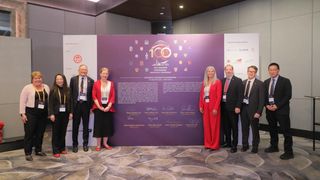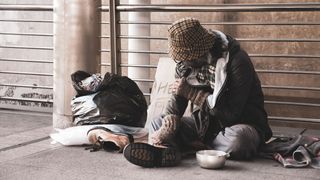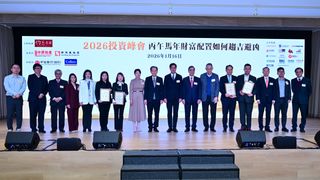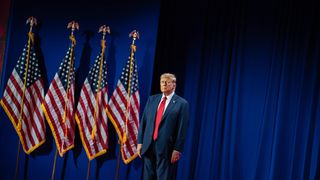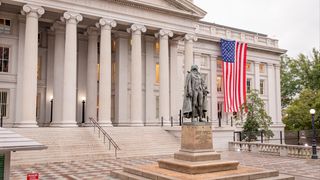(編按:由香港大學當代中國與世界研究中心與黃廷方慈善基金聯合主辦的第二屆富麗敦論壇6月17日舉行。聯合國前秘書長潘基文出席並發表題為「多邊主義困局」 [Multilateralism Under Siege] 的演講。《巴黎協定》(The Paris Agreement)簽署近10周年,潘回顧了中國領導層為促成該協議所作出的歷史性努力。面對未來5年實現聯合國可持續發展目標的關鍵窗口期,他強調了加強全球團結、促進和平發展的重要性,尤其在氣候行動、減貧和教育合作等領域,以下為演講原文。)
各位來賓:
今天,我很榮幸能與各位嘉賓交流。在亞洲、多邊主義、地球以及人類共同未來都面臨如此重要時刻,能夠與各位嘉賓交流,意義非凡。
如今,世界比以往任何時候都更需要充滿活力的新世代變革型思想家和實幹家。我們需要能夠洞悉全球挑戰規模和深度的思想家,也需要敢於挺身而出、勇於行動、應付這些迫切挑戰的實幹家。
我相信,今天在座的各位,包括教授、私營部門高管和高層領導,以及來自香港特區政府、國際組織和使團的代表,都將在幫助我們找到應對這些重大挑戰的解決方案方面發揮關鍵作用。
全球安全面臨最危險時刻
今天,我們生活在一個前所未有的時代,新的危機相互交織,全球不確定性加劇。大國競爭日益加劇。此外,俄羅斯對烏克蘭的非法戰爭以及可怕的加沙戰爭,是幾十年來全球安全面臨的最危險時刻之一,也是對多邊主義的挑戰。
近年來,單邊主義的傾向因美國特朗普主義的興起而加劇。我擔心我們可能會進入一個「人人為己,人人反對人人」的世界。我們人類必須運用智慧,立即阻止這種自我毀滅的趨勢。
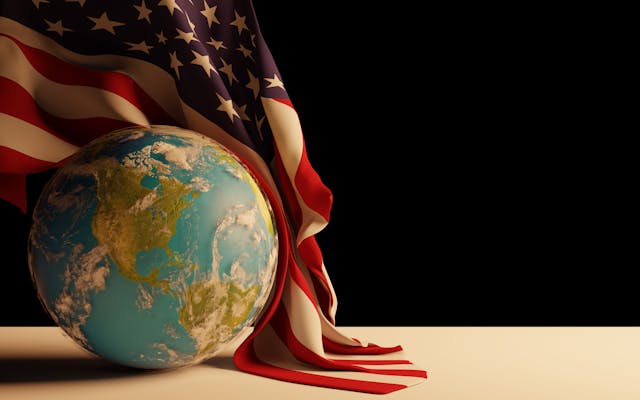
與此同時,我們的星球正在「沸騰」,氣候危機正在加劇,氣溫飆升,野火肆虐,洪水肆虐。衝突、流行病和氣候變遷等全球危機表明,我們彼此息息相關。它們也清楚地表明,我們需要多邊應對。
而這些解決方案必須植根於夥伴關係和包容性,並以增進世界各地所有人的健康、安全、可持續性和繁榮為核心。 從城市到鄉村;從高收入國家到最不發達國家;從飽受戰火蹂躪的社區到和平的社區,人類正面臨着層層遞進、相互交織、錯綜複雜的挑戰,這些挑戰影響着所有人。
在衝突不斷擴大、全球危機不斷加劇和令人眼花繚亂的變革背景下,我們也在包括全球發展在內的關鍵領域取得了顯著進展。我仍然堅信,我們擁有寶貴的機會,可以讓世界變得更美好。但要做到這一點,我們必須更加團結一致,更加迫切。我們必須找到我們共同的人性。
三個領域重振多邊主義
我首先要強調,在多邊主義面臨困境之際,攜手重振多邊主義的必要性。其次,我將強調三個具體領域,以便做到這一點,同時為所有人創造一個更和平、更可持續的世界。
聯合國的成立旨在促進二戰後多邊合作的協同作用,但現在正受到一些強國的破壞。事實上,對外援助和全球發展資金的廣泛且不穩定的削減,正在阻礙聯合國及其主要機構和優秀人才的重要活動,而這些活動比以往任何時候都更需要他們。
聯合國兒童基金會、世界衛生組織、聯合國人道事務協調廳、世界糧食計劃署、聯合國難民事務高級專員公署等機構都面臨關乎生存的削減和重組,這些削減和重組已經嚴重擾亂了聯合國的救生工作。而這一切發生在民族主義和本國優先單邊主義日益盛行的大背景下。
在這種令人擔憂的背景下,我堅信我們需要果斷採取行動,扭轉這一趨勢,不僅要恢復多邊主義,更要重振多邊主義,使其更符合當今時代的使命。為此,我認為所有主要利害關係人應優先考慮以下三個行動領域。
改革聯合國 加強職能
首先,我們必須透過及時必要的改革來加強聯合國及其轄下機構。這將使聯合國的核心工作重點放在促進全球和平與繁榮,造福所有人;同時,避免職能重叠、臃腫和冗餘。
但嚴酷的現實是,我們正目睹全球合作的驚人倒退,而我們正處於二戰以來最危險的時刻,特別是加沙和烏克蘭兩場仍持續的重大戰爭及其地區擴張的可能性,正在阻礙全球合作,加劇地緣政治分歧,並阻礙關鍵的氣候和發展努力。
各國現在正在減少這方面的支出,以及人道援助,而世界最需要這些資金。我認為,改革是一個重要且持續的過程,對於確保聯合國能夠應對當前和未來的地緣政治和人道主義危機至關重要,特別是這包括改革聯合國安全理事會──它在應對重大危機時往往缺位。

擴大夥伴關係
第二,聯合國應更積極擴大與各國政府、私部門、民間社會、學術界和青年的夥伴關係,以落實聯合國可持續目標和《巴黎協定》。
事實上,距離聯合國全球目標的實施僅剩5年時間,我認為所有關鍵利害關係人攜手合作,刻不容緩地加速氣候行動的進展和聯合國可持續目標的實現。
在我擔任聯合國秘書長領導的10年任期內,我非常自豪地促成了全世界共同達成聯合國可持續目標和《巴黎協定》。 這兩份文件被國際社會譽為人類集體智慧的體現。
我感謝習近平主席的領導,邀請我和時任美國總統奧巴馬出席2016年在杭州舉行的20國集團峰會邊會,向我移交《巴黎協定》批准書。他敦促其他國家批准該協定,使其自2016年12月12日起生效。大約一個月後,時任總統的特朗普宣布退出《巴黎協定》。我相信,如果沒有習近平主席的大膽和堅定的倡議,《巴黎協定》不可能生效。習近平主席主持的這次活動體現了多邊主義的精神。
今天,可持續目標和《巴黎協定》通過10年,它們在某些領域取得了可持續的進展。但其他可持續目標的進展並不均衡,某些部門和地區的進展速度比其他部門和地區的進展速度更快。衝突、新冠疫情和氣候危機,導致可持續目標的實地實施出現令人不安的逆轉。
然而,我們最近經歷了極端熱浪、野火、洪水和其他自然災害。世界氣象組織已確認,2024年全球平均氣溫將比工業化前平均氣溫高出1.55攝氏度。 這表明2024年不僅是有記錄以來最熱的一年,而且首次超過了《巴黎協定》設定的1.5攝氏度目標。
所有人的生存都因我們對大自然的所作所為而受到威脅。特朗普總統退出《巴黎協定》的決定正在嚴重影響全球發展。
但現在是我們絕對不能失去焦點的時候了。我始終堅信,可持續目標和《巴黎協定》為我們提供了一個可行的路線圖,使我們能夠為所有人和我們的地球,規劃一個更和平、可持續、包容和繁榮的未來。
在這方面,恢復聯合國作為最具普遍性的組織的權威和信譽,是履行我們共同為子孫後代所做的承諾的迫切道德責任。為此,聯合國會員國必須忠實履行去年9月在聯合國大會未來高峰會上通過的《未來公約》。
《未來公約》的誕生源自於這樣一種認知:在一個全球挑戰如此交織的世界裏,迫切需要全球合作和面向未來的解決方案。它聚焦在五個關鍵領域:可持續與融資;和平與安全;人人享有的數位化未來;青年與子孫後代;以及全球治理。我認為,在最需要的時候推動聯合國進一步改革、重振多邊主義是一項至關重要的成就。
今年是聯合國成立80周年,改革和強化聯合國,並在更大範圍內重振多邊主義,正逢其時。
建立全球公民意識 引領政治領導層前進
第三,至關重要的是,我們還必須積極鼓勵當代和後代建立全球公民意識,以引領政治領導層前進。「全球公民」是一個重要的概念,它可以作為解決我們面臨的一些最緊迫挑戰和幫助我們實現全球目標的獨特工具。
儒家思想中追求和諧世界秩序的概念可以被視為全球公民理想的先驅。全球公民不僅將自己視為一個國家的成員,更廣泛地將自己視為全人類的一員。
他們為保護地球而奮鬥,並包容其他民族和文化。他們致力於服務和幫助他人。
他們架設橋樑,而非築起高牆。他們超越國家和個人利益的狹隘視角,為所有人民和地球創造更美好的世界而努力。
隨着全球危機和不確定性的加劇,我們面臨的挑戰似乎前所未有。我們的因應措施──在加強多邊主義、同情心和夥伴關係的支持下──也必須同樣前所未有。
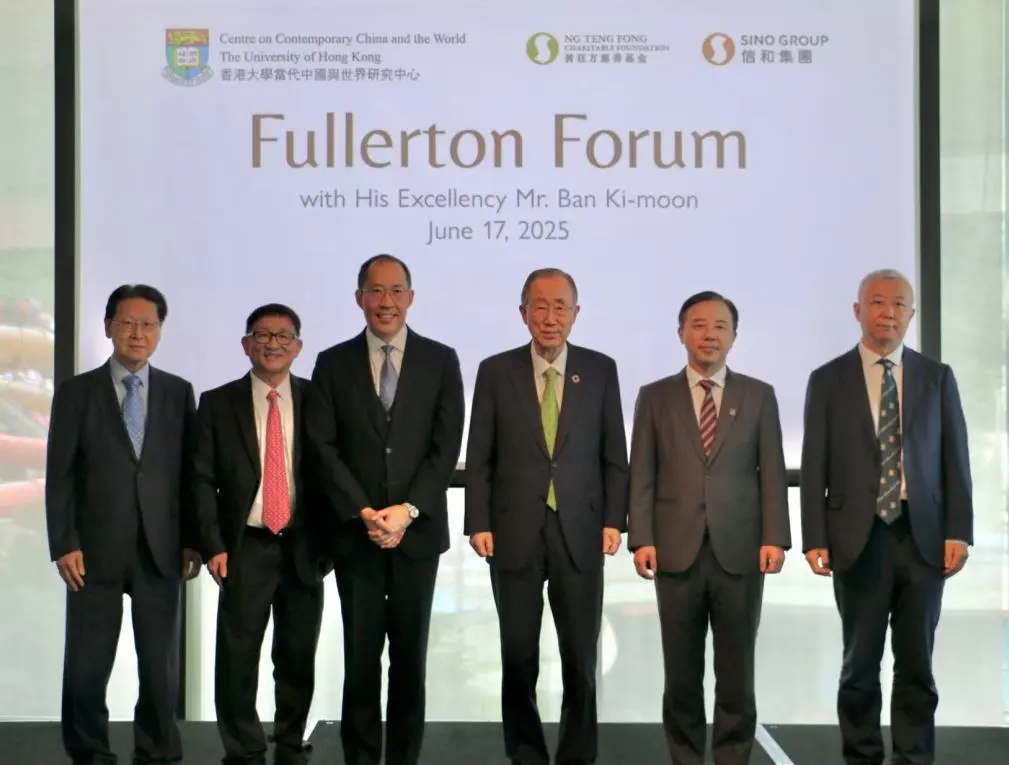
這對於確保可持續、採取果斷的氣候行動、建設和平與解決衝突以及賦能煥發活力的全球治理至關重要。
因此,在聯合國的領導下,重振夥伴關係和多邊主義,可以幫助我們加速可持續目標的進展,推動緊急氣候行動,並實現和平。
我們需要更加團結、同舟共濟,並展現全球公民意識。我們也必須牢記,我們所面臨的相互關聯的全球挑戰,本質上需要全球性的解決方案。
我們能夠創造我們想要的未來,一個以可持續、和平與包容為基礎的未來,造福所有人和我們的地球。但要做到這一點,我們所有人都必須團結一致。
跨越國界和海洋,跨越世代、跨越文化和宗教,開展合作。這將在日益兩極化的世界中促進和平、可持續性和多邊行動。我們需要確保聯合國的全球目標是地方事務;在香港、在亞洲,甚至更廣闊的領域。
我們只有一個地球,保護好它最終將決定我們共同的未來,⅞以及我們子孫後代的未來。
對人類和我們的地球來說,這是關鍵的一年,也是關鍵的十年。我堅信,我們一定能夠抓住這段歷史機遇,照亮一條通往充滿活力的未來的道路──一條和平、可持續、人人共享繁榮的未來。 感謝您的關注與努力!
Excellencies, members of diplomatic corps, distinguished guests, ladies and gentlemen,
It is my great privilege to speak to you today on the occasion of this edition of the Fullerton Forum Lecture Series.
I’m thankful for the opportunity to address this dynamic platform for intellectual exchange and insightful dialogue.
Indeed, it is quite meaningful to speak to all of you at such an important juncture for Asia, for multilateralism, for our planet, and for the collective future of humanity.
My special recognition goes to President Zhang Xiang, and Chairman Robert Ng, for their leadership and strong commitment to advancing mutual trust, cooperation, and shared prosperity through this important lecture series.
Now more than ever before, the world needs a dynamic new generation of transformative thinkers and doers.
Indeed, we need thinkers who can appreciate the scale and depth of the global challenges before us. And we need doers who will not hesitate to step forward with the courage to take action to confront these pressing challenges.
And I am confident that the attendees here today, including professors, private sector executives and senior leaders, and representatives from the HKSAR government, international organizations, and missions will all be key in helping to forge solutions to the great challenges we face.
Today, we are living in an unprecedented era of new, interconnected crises and elevated global uncertainty.
Great power rivalry is intensifying. And, the illegal Russian war against Ukraine and the horrific war in Gaza represent one of the most dangerous moments for global security, and challenges to multilateralism, in decades.
Recently, the tendency of unilateralism (“my country first”) was bolstered by the advent of Trumpism in the US. I am concerned that we might enter into the world of “everyman for himself, all against all.” We, human beings, have to exercise wisdom to stop this self-destructing trend now.
At the same time, our planet is “boiling,” as the climate crisis is deepening with surging temperatures, burning wildfires, and raging floods.
Global crises such as conflict, pandemics, and climate change have shown how we are all interconnected. They also make it clear that we need multilateral responses.
And such solutions must be rooted in partnership and inclusiveness; and centered on enhancing health, security, sustainability, and prosperity for all people, everywhere.
From cities to villages; from upper income countries to the least developed; from communities plagued by war to those at peace; humanity is facing cascading, intertwined, and complex challenges that are impacting all people.
Under this backdrop of expanding conflict, planetary crisis, and dizzying change, we have also made notable progress in key areas, including in global development.
And I am still confident that we have invaluable opportunities to change the world for the better. But to do so, we must come together in greater solidarity and urgency. We must find our common humanity.
Today, I will First highlight the necessity of coming together to reinvigorate multilateralism
at a time when it finds itself under siege. Second, I will underline three specific areas to target in order to do so and simultaneously create a more peaceful and sustainable world for all.
Distinguished Guests, Ladies and Gentlemen,
The United Nations, which was designed for synergizing multilateral cooperation in the wake of the Second World War, are now being undermined by some powerful nations.
Indeed, widespread and destabilizing funding cuts to foreign aid and global development are hampering the vital activities of the UN, its key agencies, and its talented personnel just when they are needed more than ever before.
UNICEF, the WHO, the UN Office for the Coordination of Humanitarian Affairs, the WFP, the UN High Commissioner for Refugees, and more are all facing existential cuts and restructuring that are already causing severe disruptions to the United Nations’ lifesaving work. And this is occurring within the larger context of a growing trend towards nationalism and “my country first” unilateralism.
Under this concerning backdrop, I firmly believe that we need to act decisively to reverse this trend, and not only restore, but reinvigorate multilateralism so it’s more fit for purpose today.
To do so, I believe all key stakeholders should prioritize the following three areas of action.
First, we must strengthen the UN and its agencies through timely and necessary reforms. This will focus the essential work of the UN on advancing global peace and prosperity for all; while avoiding overlap, bloat, and redundancy.
But the harsh reality is that we are witnessing a staggering retreat of global cooperation, just as we find ourselves in the most dangerous moment since World War II. Particularly, the two major ongoing wars in Gaza and Ukraine, and the possibility of their regional expansion, are hindering global cooperation, sharpening geopolitical divides, and stalling key climate and development efforts.
States are now spending less on this, and on humanitarian assistance, just as the world needs these funds the most.
I am of the view that reform is an important and ongoing process necessary to ensure that the UN remains responsive to the geopolitical and humanitarian crises of both today and tomorrow.
Particularly, this includes reforming the UN Security Council—which is often absent in responding to major crises.
Second, the UN should more actively expand its partnership efforts—with governments, the private sector, civil society, academia, and young people—to implement the UN SDGs and the Paris Climate Change Agreement.
Indeed, as we currently have just five years until the implementation of the UN Global Goals,
I am of the view that it is absolutely critical that all key stakeholders come together in partnership to urgently accelerate progress on climate action and the achievement of the UN SDGs.
During my decade-long tenure leading the United Nations as its Secretary-General, I am extremely proud to have brought the entire world together to agree to the UN Sustainable Development Goals and Paris Climate Change Agreement.
Those two documents were hailed in the international community as the expression of collective human wisdom.
I was thankful to the leadership of President Xi Jinping for inviting me and President Obama of the US to the side event of the G20 summit meeting held in Hangzhou in 2016 to hand over the instrument of ratification of the Paris Climate Change Agreement to me.
It urged other countries to ratify the Agreement to make it effective as of December 12, 2016. It was about one month before President Trump withdrew from the Paris Climate Change Agreement. Without the bold and determined initiative of President Xi, I believe that the Paris Climate Change Agreement could not have been in effect. This event hosted by President Xi represented the spirit of multilateralism.
Today, ten years since their adoption, the SDGs and the Paris Climate Change Agreement have made sustainable progress in certain areas.
But progress is uneven on other SDGs, with some sectors and geographic areas moving faster than others. And conflict, COVID-19, and the climate crisis have led to troubling reversals in SDG implementation on the ground.
However, we have recently experienced extreme heat waves, wildfires, floods, and other natural disasters. The World Meteorological Organization (WMO) has confirmed that the global average temperature in 2024 was 1.55 Celsius degrees above pre-industrial average.
This indicates that 2024 was not only the hottest year on record, but also, for the first time, exceeded the 1.5 degree Celsius target of the Paris Agreement.
We are all under existential threat from what we have done to nature. The decision of President Trump to withdraw from the Paris Climate Change Agreement is seriously impacting global development.
But now is the time we must not lose focus. I continue to believe that the SDGs and the Paris Climate Change Agreement offer us a viable roadmap to chart a more peaceful, sustainable, inclusive, and prosperous future for all people and our planet.
In this regard, the restoration of the UN’s authority and credibility as the most universal organization is an urgent moral imperative in order to fulfil the promises we have collectively made for the next generations.
To this end, UN Member States must faithfully implement the “Pact for the Future,” which was adopted at the Summit of the Future at the UNGA in September of last year.
The Pact was born out of the realization that global cooperation and future-oriented solutions are urgently needed in a world with such overlapping global challenges.
The Pact focuses on 5 key areas: sustainable development and financing; peace and security; a digital future for all; youth and future generations; and global governance. I believe it is a vital achievement to spur greater UN reforms and revitalize multilateralism when it is needed the most.
And as the UN celebrates its 80th anniversary this year, reforming and sharpening the Organization and reinvigorating multilateralism more largely is extremely timely.
Third, and crucially, we must also actively encourage both our current and future generations to embrace a sense of global citizenship to guide political leadership forward.
Global citizenship is an important concept that can serve as a unique tool to solve some of our most pressing challenges and assist us in reaching our Global Goals.
The idea of the pursuit of a harmonious world order in Confucian teachings can be seen as a precursor to global citizenship ideals. Global citizens are those who identify themselves not only as a member of a nation, but also, as a member of humanity more largely.
They fight for the protection of our planet and are tolerant of other people and cultures. They are committed to serving and helping others.
They build bridges rather than construct walls. They look beyond the narrow prism of national and personal interests and work for a better world for all people and planet.
Distinguished Guests, Ladies and Gentlemen,
As global crises and uncertainty mount, it feels like the challenges we face are unprecedented. Our response—bolstered with enhanced multilateralism, compassion, and partnership—must be equally unprecedented too.
This is true for ensuring sustainable development, taking decisive climate action, building peace and resolving conflicts, and empowering rejuvenated global governance.
As such, reinvigorated partnership and multilateralism—with the UN in the lead— can help us accelerate progress on the SDGs, spur urgent climate action, and wage peace.
We need greater unity, solidarity, and global citizenship. And we must also remember that the interconnected global challenges we face inherently require global solutions.
We can create the future we want, one that is anchored in sustainability, peace, and inclusion for all people and our planet. But to do so, all of us will have to work in solidarity.
Collaborate across borders and seas, generations, cultures, and religions. This will boost peace, sustainability, and multilateral action in an increasingly polarized world. We need to ensure that the UN’s Global Goals are local business; in Hong Kong, in Asia, and beyond.
We only have one planet and sustaining it will ultimately dictate our collective future and our children’s future.
This is a pivotal year, and decade, for humanity and our planet. I have no doubt that we can seize this historic opportunity and illuminate a path to this vibrant future—one that is peaceful, sustainable, and prosperous for all.
Thank you for your attention and efforts!





